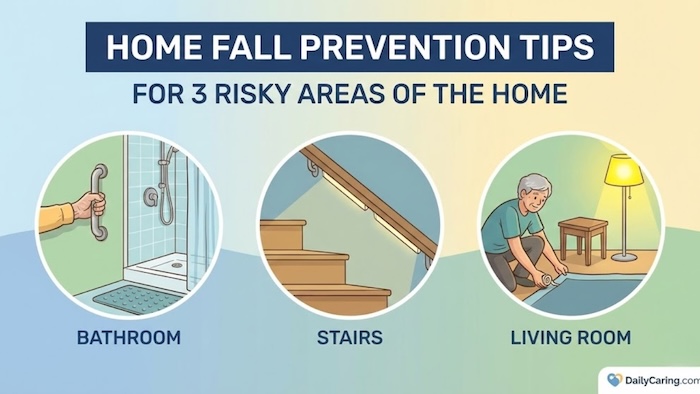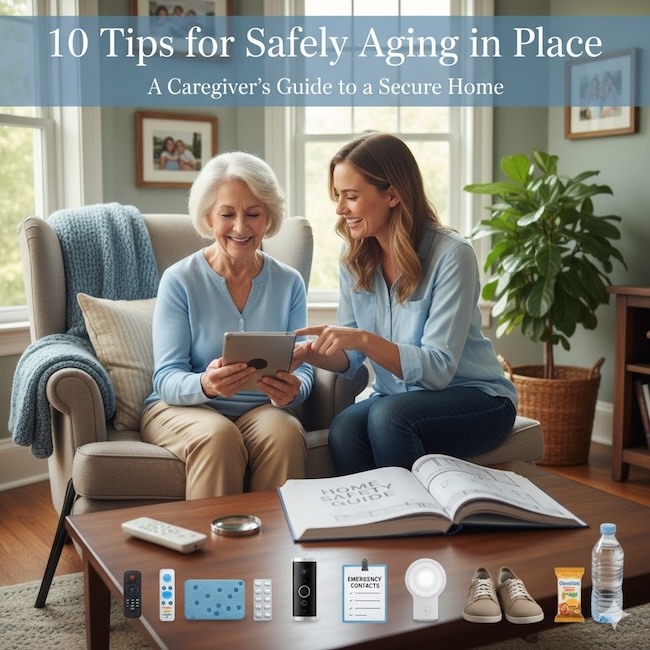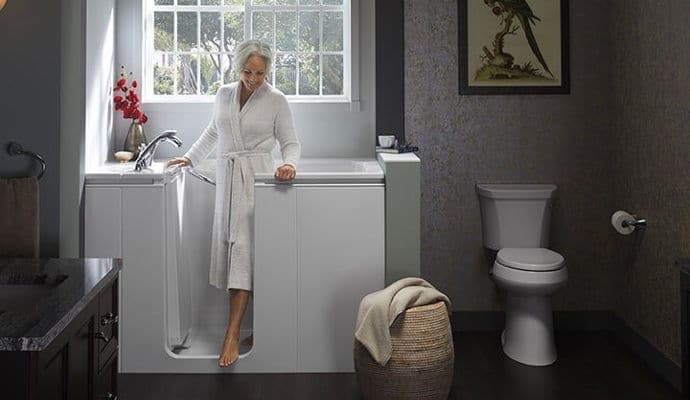When older adults hang on to a lot more stuff than they need and insist on living in extremely cluttered spaces, they may be hoarders. If your loved one is showing this behavior, you’re probably worried – for good reason!

Hoarding poses physical dangers, including increased fall risk, blocking emergency workers from reaching your loved one, and unsanitary living conditions. It could also be a sign of a serious condition like Alzheimer’s or dementia.
What is hoarding?
Hoarding is when someone compulsively buys and saves objects even though they have so many belongings that they’re creating health and safety issues in their home.
Seniors who are hoarders resist your attempts to get rid of anything and often say their possessions are:
- Useful or needed for future use
- Unique, irreplaceable, or have great sentimental value
- Incredible “deals” they couldn’t pass up (even if it’s something they didn’t need or want)
Hoarding health risks and dangers
Hoarding results in serious side effects for older adults, including:
- Preventing emergency care – firefighters or emergency medical technicians (EMTs) may not be able to get through the house to reach them
- Causing physical danger – increased risk of falls or not being able to move around due to the extreme clutter
- Refusing home help – won’t allow anyone into their home (usually due to embarrassment or fear of their stuff being disturbed), this negatively affects their nutrition, hygiene, and medication
- Producing unsanitary conditions – spoiled food leads to pests and foodborne illness
- Creating fire hazards – piles of old papers, newspapers, or magazines can easily go up in flames
What causes the hoarding behavior?
Right now, the cause of hoarding isn’t clear. Doctors and psychologists think that hoarding could be a sign that someone has dementia, other cognitive disorders, or a mental illness like OCD, depression, or anxiety. Other triggers include living alone for long periods of time without social interaction, lack of cognitive stimulation, or a traumatic event.
Another possibility is something called Diogenes syndrome, which can be brought on by dementia or frontal lobe impairment. Someone with this syndrome shows extreme self-neglect, domestic squalor, social withdrawal, apathy, compulsive hoarding of trash, and lack of shame.
3 tips to help seniors who are hoarders
1. Visit the doctor
Because hoarding is connected to health conditions or mental health issues, it’s likely that your older adult will need professional help. Having their doctor do a full evaluation will help figure out if the behavior is caused by dementia or other medical conditions.
2. Consider therapy
If the issue isn’t related to a medical condition, therapy (sometimes in combination with medication) is a way to help seniors manage their hoarding behavior.
3. Encourage them to declutter with kindness and compassion
- Be patient and compassionate and go slowly
- Break down the task into clearing small areas or rooms over time rather than trying to tackle everything at once
- Treat even small steps as a victory – throwing away one or two items could be a major event for your senior
- Start by getting rid of a small portion of a larger collection to show your senior that they’re capable of letting go of things
You might also like:
— Declutter Your Older Adult’s Living Space
— Home Safety for Seniors: 10 Quick Fixes for Bathroom, Bedroom, and Kitchen
— VIDEO: Get Up From a Fall MacGyver Style!
Sources: SageMinder, Patch, A Place for Mom
About the Author

Connie is the founder of DailyCaring.com and was a hands-on caregiver for her grandmother for 20 years. (Grandma made it to 101 years old!) She knows how challenging, overwhelming, and all-consuming caring for an older adult can be. She also understands the importance of support, especially in the form of practical solutions, valuable resources, and self-care tips.














Hoarding problem 4 months and no change in the apartment I said would help to get things in order without her see what I’m doing but she hasn’t done no removing any items . Help with seniors living in hoarding
Unfortunately, there aren’t any quick solutions to hoarding issues, but we hope the 3 tips we cover in the article can help improve the situation over time.
These articles never address the one elephant in the room that is possibly the most significant hurdle to decluttering or the cause of it in the first place. Many elderly and disabled on fixed income can’t afford the cost of household trash pickup or dumpster rental. I know of many (20%!) in my county, where this is not a service included in the utilities or provided by the county and city, and cost is the ONLY obstacle. Our local poverty level is 10% higher than the national average.
And all of the Concerned Citizens would like to cluck and pshaw over these persons and never meet the actual point of need. Help to do it might not be the issue. Help to AFFORD IT, quite likely IS. All the profit mongers will gather to collect, but if you can’t afford it, they scurry away like rats.
That’s a great point and unfortunately too true. In cases where the older adult can’t cover the costs, there hopefully would be local community organizations that could provide free assistance. A good place to start would be the local Area Agency on Aging, they should be able to make helpful referrals. More info here – https://dailycaring.com/area-agency-on-aging-resources-for-seniors/
We have been noticing mom has been living in an extremely cluttered home that is in extreme contrast to how she has lived for over 60 years.
Not long after losing both of her parents within 11 months of each other a few years ago we began to notice a drastic change in her home.
She did have some major renovations at that point in time…we thought maybe it was just harder for her to get around as she used to and the projects were a challenge for her.
So the family got together to help her recently she became extremely agitated and defensive.
After reading the article it is obvious that much more is going on with her.
Will share these with my sisters and discuss these insights further once they have read the articles.
Thank you for sharing these tips with us!
I believe mom will greatly benefit from the new perspective reading your articles has given.
We’re so glad this article has been helpful. Hanging on to things and having a lot of clutter can be a tough challenge to overcome. Losing both her parents must have been very difficult. These big life changes could certainly have contributed to this change in behavior. We wish you all the best as you help her through this.